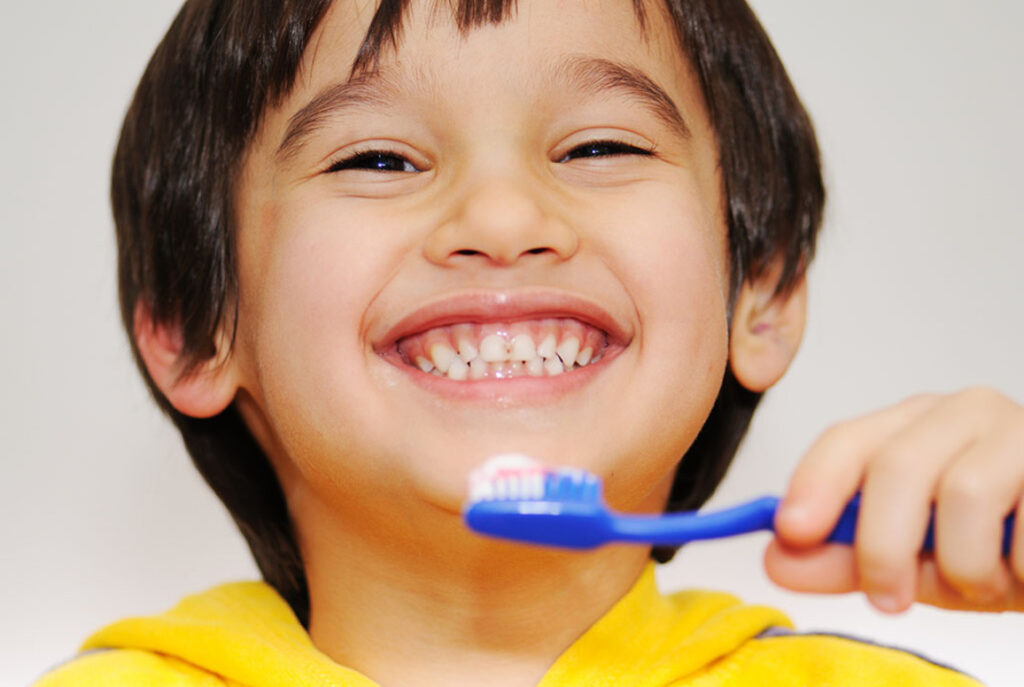Teeth Sensitivity can occur when you eat hot, cold, sweet, or sour foods, or even breathe cold air. The pain can be sharp and sudden and can go deep into the nerve endings of the tooth.
Teeth consist of 3 layers
- ENAMEL:
– The outer hard layer is made up of hydroxyapatite crystals.
– t is the hardest tissue in the human body.
– It covers the crown part in a tooth structure.
– It is translucent in appearance. - DENTIN:
It is beneath the enamel and is made up of 65% hydroxyapatite crystals and 33% organic material and also contains microscopic tubules called “dentinal tubules”. - PULP
– It is made up of living tissue and odontoblast.
– Sensitivity can occur during flossing and brushing.
Dental hypersensitivity or teeth sensitivity is a condition in which pain occurs due to exposure to the middle layer of teeth, DENTIN.
When the outer layer of enamel wears off, it causes severe pain and discomfort.
Hot and cold food/drinks lead to sharp pain. It may be a temporary or chronic problem affecting single or multiple teeth.
Teeth Sensitivity Causes:
1. Vigorous brushing
2. Using hard toothbrush
3. Trauma can cause chipping off of teeth structure.
4. Excessive intake of acidic food and beverages.
5. The habit of night grinding of teeth is called “bruxism”.
6. Hyperacidity causes erosion of teeth.
7. Excessive use of mouthwash.
8. Gum recession causes exposure to dentin.
9. Tooth decay.
10. Gum diseases cause the accumulation of plaque and calculus.
11. Crack in teeth.
12. Lodged food results in caries and further causes sensitivity.
13. Damage to past restoration.
14. • abrasion, • attrition, • erosion, and • abfraction cause wearing away of the upper layer of teeth causing hypersensitivity.
Teeth Sensitivity Symptoms:
Sensitivity triggers on having,
1. Hot food & drinks.
2. Cold food & drinks.
3. Sweet food.
4. Acidic food.
5. Cold water.
Teeth Sensitivity Treatment:
1. Mild sensitivity can be treated by using desensitizing toothpaste prescribed by a dentist. After several uses, it can block the pain associated with sensitivity over a period of time.
2. Fluoride application can help to cover the sensitive areas of teeth. It also strengthens enamel and reduces pain. A preventive measure it is.
3. In case of severe sensitivity, broken filling or chipped teeth, or exposed surface of dentine, it can be restored by using composite filling material or by applying bonding resin to sensitive areas.
4. Various conditions cause sensitivity like gum recession which can be treated by gum graft. If a tooth root has lost gum tissue, it can be grafted by taking a small amount from some other site in the mouth. The procedure is quite expensive. Precautions should be taken to avoid such conditions.
5. In case of habits like bruxism, the night guard is advised.
6. Acidic food & beverages should be avoided.
7. A toothbrush with soft bristles along with desensitizing toothpaste is asked to use.
8. Brush gently and in a circular pattern.
9. Use alcohol-free mouthwash. Treat medical conditions like hyperacidity/GERD.
10. In cases of severe sensitivity with pain where all the above-mentioned procedures don’t work, root canal treatment is suggested by the dentist. In root canal treatment, the innermost layer i.e. pulp is removed and it is replaced by artificial material called gutta-percha. It seals the root area of the teeth and covers its crown area with a cap. This is considered the most successful treatment.
Find the clinic here: Get direction
Pathak Dental Clinic
Address: 11/11 Akurdi Chikhli Road, Near Dwarka Collection, Kasturi market,
Sambhaji Nagar, Thermax Chowk, Below Nutan Jewellers, Chinchwad, Pune,
Pimpri-Chinchwad, Maharashtra 411019



